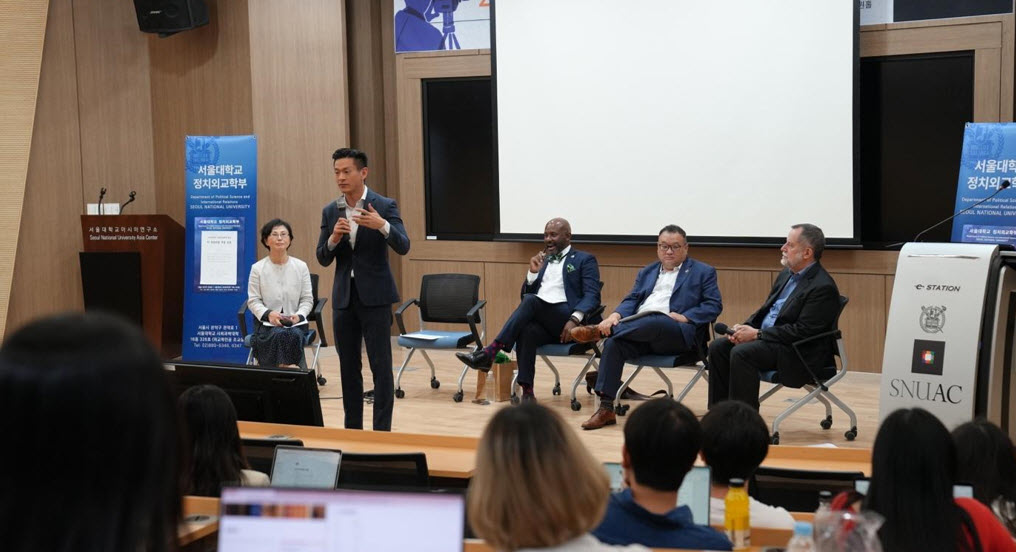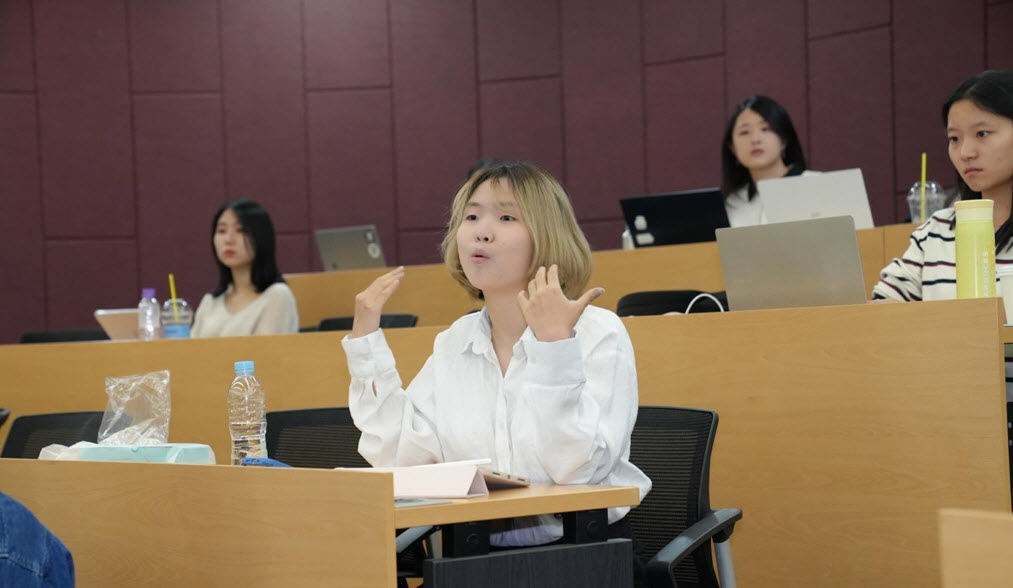The Political Science and International Relations Department at SNU holds a diverse range of lectures that not only explore Korean political structures but also examine the political structures of other regions, ranging from the Middle East to North America. “Understanding Decision-Making Process in U.S. Politics” is one such class where students study political structures of the U.S. and analyze the implications of these structures on contemporary issues in American domestic and international politics.
On October 11, the students of the “Understanding Decision-Making Process in U.S. Politics” course had the opportunity to meet currently active U.S. politicians. The politicians were visiting Korea hoping to interact with SNU students to hear their opinions on issues pertaining to U.S. domestic politics and foreign policy. The “Understanding Decision-Making Process in U.S. Politics” course was selected as the place of interaction not only due to the relevance of the course to U.S. politics but also because discussion with professionals currently in the field could help students develop a more nuanced and practical understanding of the topics they were covering in the lecture.

From Left, Professor Yi Okyeon, Evan Low, Mike Gipson, Gilbert Wong, Richard Poppen
Four politicians, each having completed or currently working in the California House of Representatives, joined the students during their class. Two of the politicians, assembly members Evan Low and Mike Gibson, are part of the U.S. Democratic Party and serve in the California State Assembly. Gilbert Wong, a member of the Governing Board of Trustee at Foothill-De Anza Community College District, was the former mayor of Cupertino, California, and Richard Poppen is a Board Member of Equality California, a non-profit civil rights organization for advancing LGBTQ+ rights in California.
The discussion between the four politicians and the students was conducted through questions students had prepared in advance. The questions covered diverse topics, from environment and economic policies to civil and minority rights.
Insightful Interactions Between Students and the U.S. Politicians
One interesting question by Seohyun Yoon (Department of Political Science and International Relations) was regarding the U.S.’ diplomatic commitment to its allies. Considering Korea’s difficult position of having to balance relations with both the U.S. and China amid an intensifying U.S.-China conflict, Yoon asked what incentives the guests thought the U.S. could promise to its allies like Korea other than ensuring they have the same values so that, should the necessity arise, allies would align with the United States. She hoped the politicians could give her a more specific answer than the ambiguous answers in research papers or official statements issued by the U.S. government.
In his response to this question, Poppen agreed with Yoon on the need for the U.S. to provide more substantial incentives to countries currently supporting the U.S., especially as China continues to exert economic leverage against nations that strongly impact nations’ economies. Despite this acknowledgement, however, the politicians did not give specific examples of policies that could be employed. Assembly member Low highlighted, however, the importance of U.S. domestic politics and the upcoming 2024 Presidential Elections in deciding whether the U.S. will begin to provide more direct incentives to supporting countries or focus more on U.S. internal affairs.

Student Questions to the Delegations
The 2023 Supreme Court Ruling on Affirmative Action was also an area of interest for students. The case had been discussed numerous times during lectures in the previous weeks when discussing the power of the Judicial Branch. Students inquired about the implications of the Affirmative Action ruling and the politicians’ own perspectives regarding it.
The politicians unanimously agreed that Affirmative Action was a necessary policy given the historical context of the United States. As a land of immigrants with a history of racial discrimination against minorities, there is often unequal access to opportunities and wealth among the different race-based population groups. Assembly member Low shared how Affirmative Action was a policy that enabled universities to acknowledge the reality in the U.S. that the history of racial discrimination is an uncontrollable factor that still limits students’ opportunities today. The implications of disallowing Affirmative Action may be less diverse and inclusive higher education, and Wong highlighted how there may be attempts to try and rescind the decision of the Supreme Court in the future.
The perspectives shared by the politicians regarding Affirmative Action were insightful to students in that because Korea is a homogenous nation, there is no policy equivalent to Affirmative Action in the Korean university admission process. The experiences and details shared by the politicians may, therefore, helped students to more profoundly understand the complex social dynamics of the U.S., ultimately enabling them to comprehend political structures as a product of a nation’s history and evaluate the appropriateness of each political system to the effective governance of a country.
The Discussion Session with U.S. Politicians and Students of the “Understanding Decision-Making Process in U.S. Politics”
The in-class discussion session between the U.S. politicians and the students allowed students to observe the U.S. political structures and issues they studied in action, expanding their scope and perspective regarding U.S. politics. In any class, opportunities to interact with professionals active in the field students learn enable them to develop a more practical understanding of their classes. SNU takes advantage of this idea, and many professors often invite experts or reputable professionals to their classes.
Written by Yeryoung Lee, SNU English Editor, yeryounglee@snu.ac.kr

